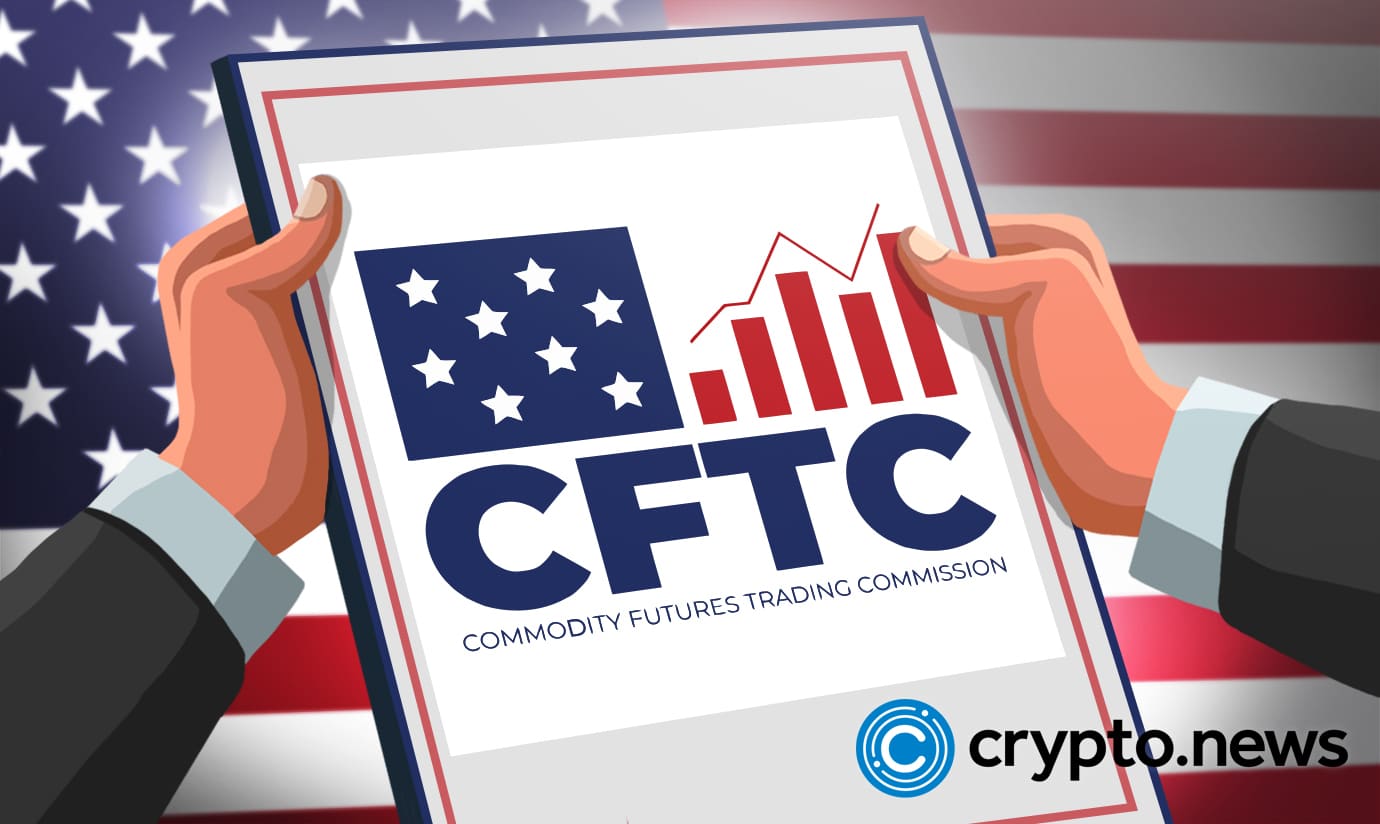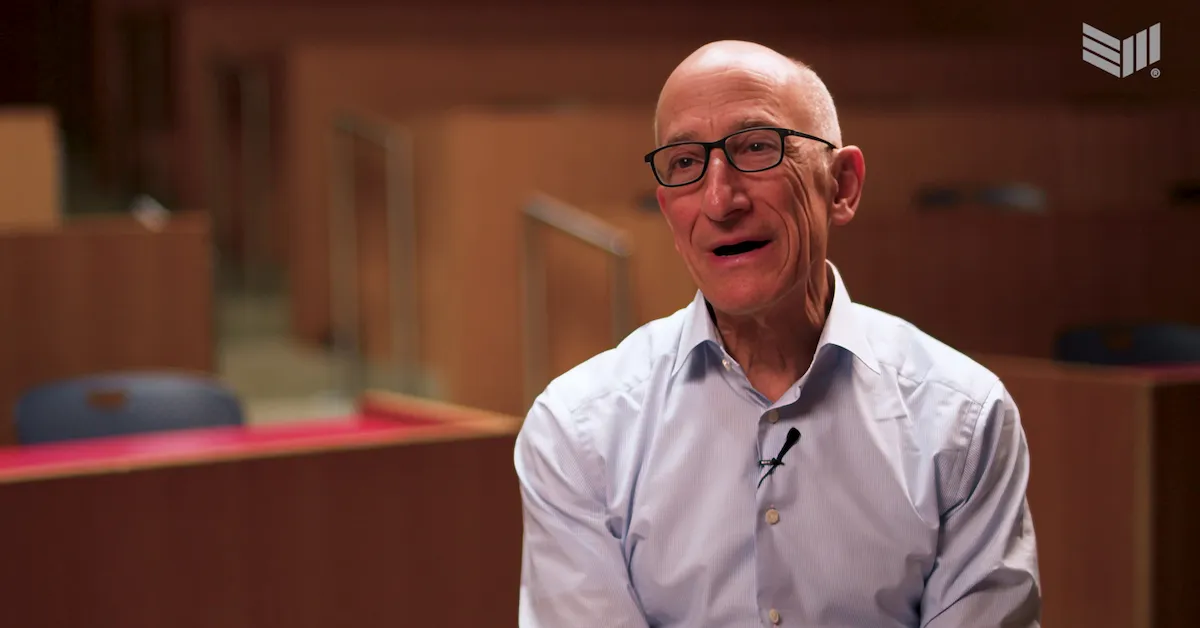CFTC
Trump in considerations for CFTC to regulate crypto
Published
5 months agoon
By
admin

The U.S. President-elect’s administration is considering the commodity trading authority to take over the crypto regulations.
The Commodity Futures Trading Commission (CFTC) is in Donald Trump’s eye to lead the emerging financial industry, cryptocurrency, after the exchange commission weighed on the past few years to rule.
According to Fox Business on Nov. 26, the effort to move the power to the CFTC has been seen as Trump and the Republican majority repeal the jobs from the Securities and Exchange Commission (SEC).
If the concept is approved by Congress, the commission will have a major role in regulating digital assets, as well as crypto-related products such as Bitcoin spot ETF and Ethereum spot ETF. It will also allow them to supervise the options market, which released some crypto products earlier this month.
The newly elected President also wanted to bring an innovative environment to the digital asset, which can create a better outlook for the industry since crypto is still considered as a new financial market.
SEC role will replaced by CFTC
The SEC, under Biden’s presidency, has received a lot of criticism from the crypto market due to the heavy enforcement of court and regulations. Last year, the commission was accusing crypto-related entities up to 46 times, which increased by 53% from the previous year. It is also the highest number of lawsuits since the commission supervised crypto in 2013, according to a report from Cornerstone Research.
Crypto exchanges, like Binance and Coinbase, are the major target for SEC lawsuits, including the Changpeng Zhao (CZ) cases for operating illegal exchanges and violating securities law. Coinbase is also facing the same lawsuit under SEC Chairman Gary Gensler, which indicates as unregistered exchange.
CFTC, on the other hand, will play a significant role in the growing industry with 50 million traders and a $3 trillion market size. The move also would allow the commission to regulate crypto exchanges, companies, and individuals in specific markets.
Source link
You may like


Now On Sale For $70,000: The World’s First Factory Ready Open-Source Humanoid Robot


What Next for ETH as Traders Swap $86M into Solana DeFi protocols ?


Why Did Bitcoin Price (BTC) Fall on Wednesday Afternoon


Solana price is up 36% from its crypto market crash lows — Is $180 SOL the next stop?


Solana Retests Bearish Breakout Zone – $65 Target Still In Play?


How Expanding Global Liquidity Could Drive Bitcoin Price To New All-Time Highs
CFTC
Senator Tim Scott Says Crypto Market Structure Bill To Be Passed by August of This Year
Published
2 days agoon
April 14, 2025By
admin
Republican Senator Tim Scott of South Carolina says a bill seeking to create a comprehensive regulatory framework for the digital asset space will become law later this year.
In a new interview with Fox News, Scott, the chairman of the Senate Committee on Banking, Housing, and Urban Affairs, says a bill that will help crypto firms thrive and innovate is set to be passed later this year, countering the last regime’s stance on digital assets.
“There’s no doubt that under the Biden Administration and [Chairman Gary] Gensler at the SEC – they just didn’t like crypto. What I’ve said very often is simply this: we must innovate before we regulate. That means allowing innovation to happen here at home in the digital assets space is critical to American economic dominance across the globe.
The good news is President Trump is leading the way to a crypto revolution starting here at the Banking Committee. And that’s why we’ve moved very quickly the GENIUS Act… It’s passed through my Committee in a bipartisan fashion. Next [is] market structure…I believe [it will be] passed into law by August.”
The Genius Act, which establishes regulations for stablecoins, is headed to the Senate floor for a vote after the Senate Banking Committee approved the bill with a bipartisan vote of 18-6.
While Scott says a bill to establish a crypto market structure is next, he didn’t mention any specific piece of legislation.
However, one bill that fits the mold is the Digital Asset Market Structure and Investor Protection Act, which would give the Commodities Futures Trading Commission (CFTC) regulatory power over digital assets while handing the U.S. Securities and Exchange Commission (SEC) the authority to oversee digital asset securities.
Follow us on X, Facebook and Telegram
Don’t Miss a Beat – Subscribe to get email alerts delivered directly to your inbox
Check Price Action
Surf The Daily Hodl Mix
 

Disclaimer: Opinions expressed at The Daily Hodl are not investment advice. Investors should do their due diligence before making any high-risk investments in Bitcoin, cryptocurrency or digital assets. Please be advised that your transfers and trades are at your own risk, and any losses you may incur are your responsibility. The Daily Hodl does not recommend the buying or selling of any cryptocurrencies or digital assets, nor is The Daily Hodl an investment advisor. Please note that The Daily Hodl participates in affiliate marketing.
Generated Image: Midjourney
Source link
CFTC
Former CFTC Chairman Timothy Massad On Bitcoin And Digital Asset Privacy
Published
6 days agoon
April 11, 2025By
admin
While attending the MIT Bitcoin Expo this past weekend, I was afforded the opportunity to sit down with Timothy Massad, Research Fellow at the Kennedy School of Government at Harvard University and former Chairman of the U.S. Commodities and Futures Trading Commission (CFTC).
Massad served as the head of the CFTC from 2014 to 2017, and it was under his leadership that bitcoin was classified as a commodity.
In recent years, Massad has shared his thoughts on what regulation around bitcoin and digital assets should look like. He’s appeared on Bloomberg to discuss the matter, and he recently testified at the first Senate Banking Subcommittee hearing on Digital Assets.
Massad considers the need to balance user privacy when using public blockchains with the need for the U.S. government to monitor the networks for illicit activities as one the biggest challenges that regulators currently face — and he doesn’t claim to have the answer as to how this is best accomplished.
He explained that it’s important that people cannot see the balance of our funds or the entirety of our transaction history when we do something as trivial as paying for a cup of coffee with a digital asset.
In our conversation, he stated that the innovator who develops the technology that finds this balance will have found the “holy grail.”
You can watch the interview here:
Source link
CFTC
The CFTC just pulled the plug on Robinhood’s Super Bowl bets—Here’s why
Published
2 months agoon
February 5, 2025By
admin

Less than a day after launching Super Bowl betting contracts, Robinhood shut them down at the CFTC’s request.
On Feb. 4, Robinhood pulled the plug on its Super Bowl betting contracts just a day after launch, following a request from the U.S. Commodity Futures Trading Commission.
The Commodity Futures Trading Commission (CFTC) has formally requested that Robinhood Derivatives, LLC (RHD) “not permit customers to access” sports event contracts.
While we continue to work with the CFTC to understand their concerns, we are suspending the rollout of the Pro…
— Robinhood Comms (@RobinhoodComms) February 4, 2025
The move comes as regulators grow increasingly wary of event-based trading products, particularly those tied to major sporting events.
The product, launched in partnership with prediction market platform Kalshi, allowed users to bet on the outcome of the Feb. 9 Super Bowl matchup between the Philadelphia Eagles and the Kansas City Chiefs.
Only about 1% of Robinhood’s customers had access to the contracts before they were suspended. Those who had already placed bets will be able to either close their positions or see them through to settlement, but no new trades will be allowed.
Robinhood, frustrated with the turn of events, stated in a tweet that it had been in “regular communication” with the CFTC about its plans and was disappointed by the outcome.
The company did not disclose the exact reasoning behind the CFTC’s intervention, but the decision comes amid broader regulatory scrutiny of event-based contracts.
Just two days ago, the agency launched an inquiry into Crypto.com and Kalshi, questioning whether their own Super Bowl contracts complied with derivatives laws.
Robinhood isn’t new to event-based trading. In October 2024, the company made its first move into the space with contracts tied to the outcome of the U.S. presidential election.
That launch followed a court ruling in favor of Kalshi, which had challenged the CFTC’s attempts to block election-based prediction markets.
The legal victory allowed Kalshi to continue offering election contracts, but it did little to resolve the regulatory gray area surrounding event-based derivatives.
A CFTC spokesperson reinforced its concerns, stating that it will “exercise its oversight authority to the fullest extent” to ensure firms comply with derivatives laws, Reuters reported.
The agency is taking a hard look at whether these products fall under traditional derivatives rules or if they should be treated as a different class of financial instruments.
For Robinhood, this latest hurdle may not mark the end of its push into the space. The company has indicated plans to launch a more expansive event contracts platform later this year, signaling that it still sees opportunity in the market.
Source link

Now On Sale For $70,000: The World’s First Factory Ready Open-Source Humanoid Robot

What Next for ETH as Traders Swap $86M into Solana DeFi protocols ?

Why Did Bitcoin Price (BTC) Fall on Wednesday Afternoon

Solana price is up 36% from its crypto market crash lows — Is $180 SOL the next stop?

Solana Retests Bearish Breakout Zone – $65 Target Still In Play?

How Expanding Global Liquidity Could Drive Bitcoin Price To New All-Time Highs

Apple Delists 14 Crypto Apps in South Korea Including KuCoin and MEXC Exchanges Amid Regulatory Crackdown

Athens Exchange Group eyes first onchain order book via Sui

Futureverse Acquires Candy Digital, Taps DC Comics and Netflix IP to Boost Metaverse Strategy
Court Grants Ripple And SEC’s Joint Motion To Suspend Appeal

AVAX Falls 2.1% as Nearly All Assets Trade Lower

What is a VTuber, and how do you become one in 2025?

Top Expert’s Update Sets $10 Target

How Academia Interacts With The Bitcoin Ecosystem

AB DAO and Bitget Launch Dual Reward Campaign, Distributing $2.6M Worth of $AB Globally

Arthur Hayes, Murad’s Prediction For Meme Coins, AI & DeFi Coins For 2025

Expert Sees Bitcoin Dipping To $50K While Bullish Signs Persist

Aptos Leverages Chainlink To Enhance Scalability and Data Access

Bitcoin Could Rally to $80,000 on the Eve of US Elections

Crypto’s Big Trump Gamble Is Risky

Institutional Investors Go All In on Crypto as 57% Plan to Boost Allocations as Bull Run Heats Up, Sygnum Survey Reveals

Sonic Now ‘Golden Standard’ of Layer-2s After Scaling Transactions to 16,000+ per Second, Says Andre Cronje

3 Voting Polls Show Why Ripple’s XRP Price Could Hit $10 Soon

Ripple-SEC Case Ends, But These 3 Rivals Could Jump 500x

Has The Bitcoin Price Already Peaked?

The Future of Bitcoin: Scaling, Institutional Adoption, and Strategic Reserves with Rich Rines

A16z-backed Espresso announces mainnet launch of core product

Xmas Altcoin Rally Insights by BNM Agent I

Blockchain groups challenge new broker reporting rule

I’m Grateful for Trump’s Embrace of Bitcoin
Trending

 24/7 Cryptocurrency News5 months ago
24/7 Cryptocurrency News5 months agoArthur Hayes, Murad’s Prediction For Meme Coins, AI & DeFi Coins For 2025

 Bitcoin3 months ago
Bitcoin3 months agoExpert Sees Bitcoin Dipping To $50K While Bullish Signs Persist

 24/7 Cryptocurrency News3 months ago
24/7 Cryptocurrency News3 months agoAptos Leverages Chainlink To Enhance Scalability and Data Access

 Bitcoin5 months ago
Bitcoin5 months agoBitcoin Could Rally to $80,000 on the Eve of US Elections

 Opinion5 months ago
Opinion5 months agoCrypto’s Big Trump Gamble Is Risky

 Bitcoin5 months ago
Bitcoin5 months agoInstitutional Investors Go All In on Crypto as 57% Plan to Boost Allocations as Bull Run Heats Up, Sygnum Survey Reveals

 Altcoins3 months ago
Altcoins3 months agoSonic Now ‘Golden Standard’ of Layer-2s After Scaling Transactions to 16,000+ per Second, Says Andre Cronje

 Ripple Price4 weeks ago
Ripple Price4 weeks ago3 Voting Polls Show Why Ripple’s XRP Price Could Hit $10 Soon


